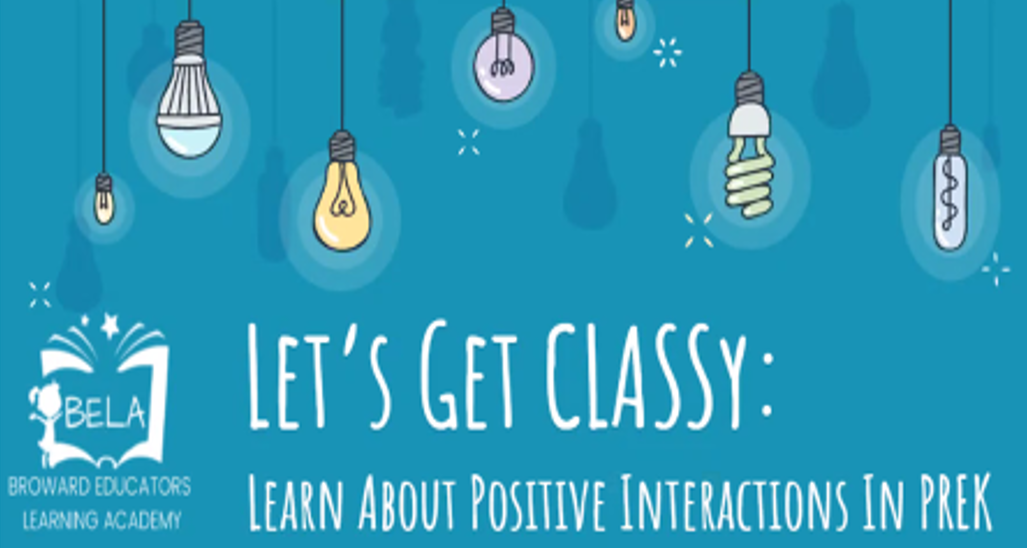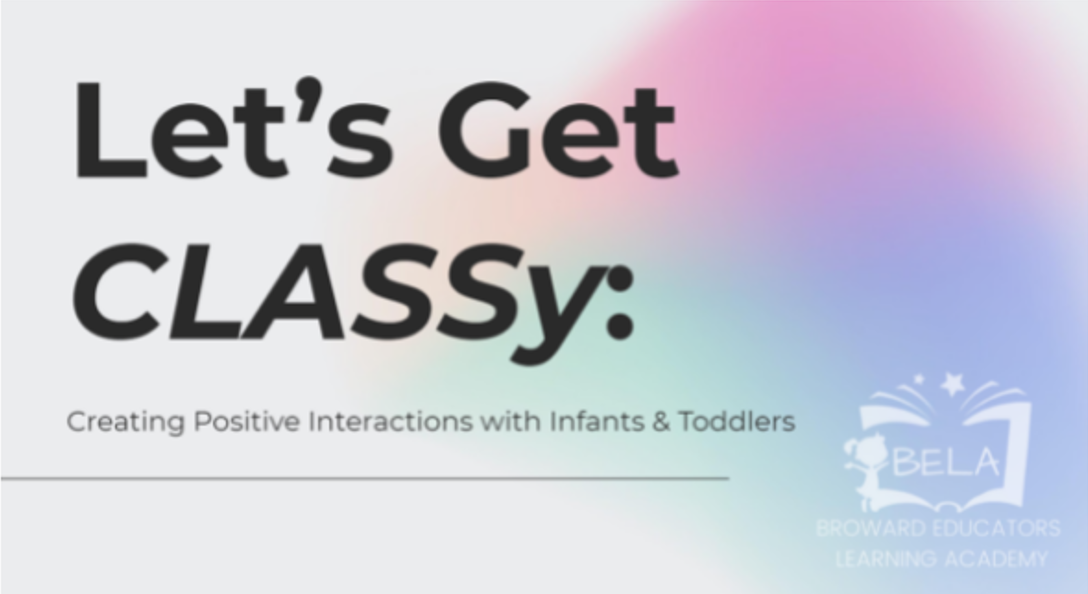
Our self-paced, prerecorded learning events are available in at your convenience.
Participants can complete an asynchronous training on their own with little or no help from an instructor.
Learners participating in an asynchronous training will need to complete each "knowledge check" question after each module, achieving 100% before being able to move on to the next section.
Learners will need to participate in the entire training to receive an in-service certificate of participation.
Once training is complete, learners will enter the LMS to complete the Post-Test and Training Evaluation.
Self - Paced Course Catalog

Let's Get CLASSy: Learn About Positive Interactions in Pre-K
Self-Paced Training
This training will help participants become familiar with the Pre-K CLASS® tool. In early childhood settings, each moment that teachers and children interact with one another is an opportunity to develop positive relationships that build on learning. During this training, we will discuss the importance of using developmentally appropriate strategies during classroom activities that take into consideration children’s differing needs, interests, learning styles, and abilities. We will also explore effective ways to increase language and vocabulary, enhance feedback, promote self-regulation in children through behavior management and routines, and link concepts to the real world with intensity and frequency.

Let's Get CLASSy: Creating Positive Interactions with Infants and Toddlers
Self- Paced Course
This training will help participants become familiar with the CLASS® tool for the Infant and Toddler Age Group. In early childhood settings, each moment that teachers and children interact with one another is an opportunity to develop positive relationships that build on learning. During this training, we will discuss the importance of using developmentally appropriate strategies during classroom activities that take into consideration children’s differing needs, interests, learning styles, and abilities. We will also explore effective ways to increase language and vocabulary, enhance feedback, promote self-regulation in children through behavior management and routines, and link concepts to the real world with intensity and frequency.
